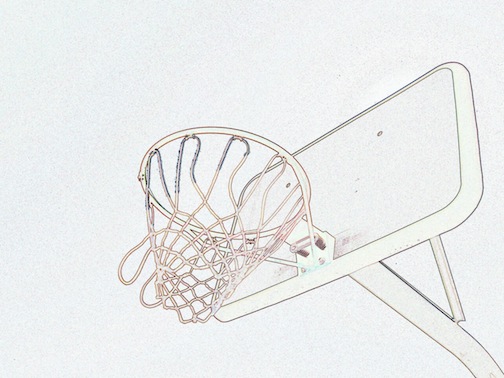By Alexander Britell
At the national level, Haiti’s athletics continue to grow.
Haiti’s football is on the rise. Les Grenadiers recently rose to 39th on the FIFA world rankings following a strong showing in the Caribbean Cup. A new, 12,000-seat football stadium is also planned near Port-au-Prince.
And Haiti had a strong showing at the recent London Olympics, highlighted by Samyr Laine’s reaching the Olympic final in the men’s triple jump.
But while Haitian sports have been developing since the earthquake, there’s one area that has untapped potential: basketball.
It’s easy to forget that, even without a robust basketball tradition, Haiti has produced three NBA players: Samuel Dalembert, who still plays in the NBA, as a center for the Milwaukee Bucks, Yvon Joseph, who played in the league in 1985, and Olden Polynice, who spent 16 years in the NBA for five different teams.
A fourth, Haitian-American Mario Elie, currently an assistant coach for the Brooklyn Nets, won three NBA championships in 15 years.
Now, though, with help from former NBA player Jim Bostic, Haiti’s basketball future is starting a new chapter.
Bostic, who is currently a programme coordinator at Nepperhan Community Center in Yonkers, New York, first traveled to Haiti in 2010, shortly after the earthquake, through a relationship with the Mt Carmel Baptist Church.
“I had an opportunity to go survey the land and just talk with people and do all of those kind of things,” he said. “From that point, I came back committed to make a difference. There are problems there, but we felt like if we could identify one area and help with that area, we would have made a big difference.”
Enter Jason Valbrun.
Jason was heavily into sports, and his mission was building up Haitian pride through sports, Bostic said, with one of those sports being basketball.
“He shared his vision of how he wanted to create a national team out of Haiti, and I told him whatever I could do to help I would,” he said. “So he showed me some of the things he wanted to do, and it was a good match.”
Bostic quickly agreed to come back and help kick off the process of building a national basketball programme which would represent the country internationally.
“We went back last year and this year, and actually began the process of conducting basketball clinics and teaching the players, as well as the coaches, how to put together a powerful organization that’s sustainable and also competitive on an international level,” he said. “And we’ll be going back on numerous occasions until they have their programme up and running.”
Bostic is starting with a largely blank canvas, but Haiti’s basketball does have a foundation, particularly with the aforementioned success of players like Dalembert and Polynice. The latter was recently named a goodwill ambassador for the country by Haiti President Michel Martelly.
“I see some potential there,” Bostic said. “I didn’t see all of the players across the country across Haiti, so I don’t know the volume of players they have there, but I do know that, from what I’ve seen, they have some decent talent.”
Right now, the biggest priority is to build a training facility, he said.
“It doesn’t have to be comparable to the US or big-time universities, but they need a facility where they can go and have multiple baskets, multiple courts, a fitness room,” he said. “They need a place where they can really be trained in an isolated environment and have everything they need right there from strength and conditioning to a film room where they can watch film.”
The goal is to “create that state of mind, by creating a state-of-the-art facility, that makes guys begin to feel like they’ve arrived, where we can effectively begin to develop and grow a basketball programme.”
Right now, some practices are held in outdoor facilities, he said, something that is “ludicrous when you consider what their competition is doing.”
“I’m not saying it’s impossible, but that, to me, would be where I would start,” he said.
The question is whether the NBA might get involved in supporting the programme — something that would provide a significant shot in the arm for Haiti’s efforts.
That’s something Bostic said he spoke to former President Bill Clinton about when he visited the country.
“For the NBA, that would be a no-brainer,” he said. “The NBA certainly has the resources and the influence, nationally and internationally, to be able to do so while reaching out to some of the former NBA players [from Haiti].” (The NBA did not respond to requests for interviews).
For a country still working to recover from the earthquake, still trying to rebuild and develop, a unifying national basketball programme could prove to be a big boost.
“These [national] sports programmes have a way of bringing about national hope and spirit, and camaraderie, and a central theme that people can rally outside of misery and poverty, like nothing else can,” he said.
And that could mean the world to Haiti.
“I think it has the potential of not only bringing international attention to Haiti, because I ultimately see a team coming out of Haiti — even though they might be considered huge underdogs given the lack of experience,” he said. “I could see not only brining renewed spirit to the people of Haiti, but I could also see an entire world rallying around Haiti — the world likes to see the little guy rise up sometimes, and ultimately be the winner — and I see Haiti in that kind of position.”
